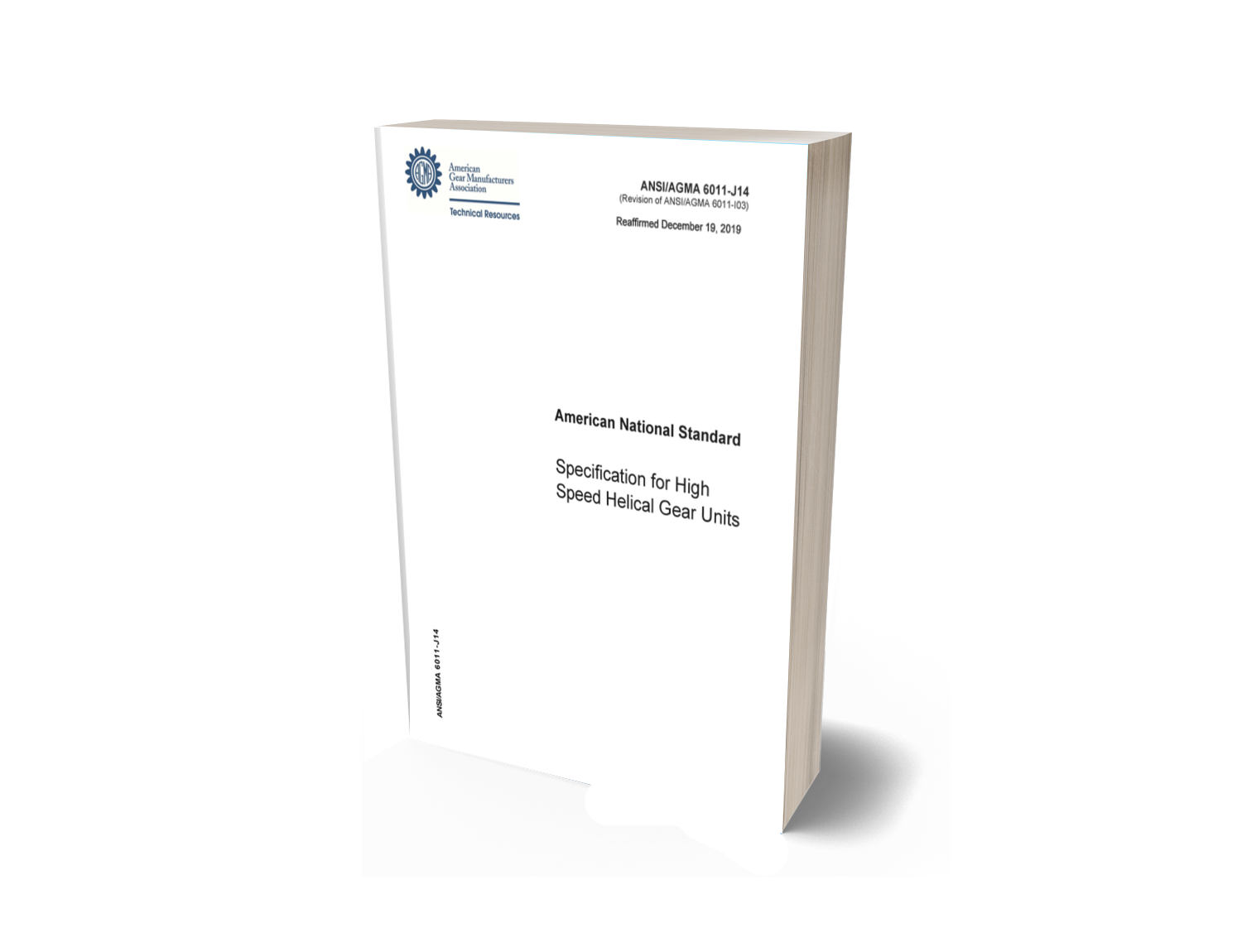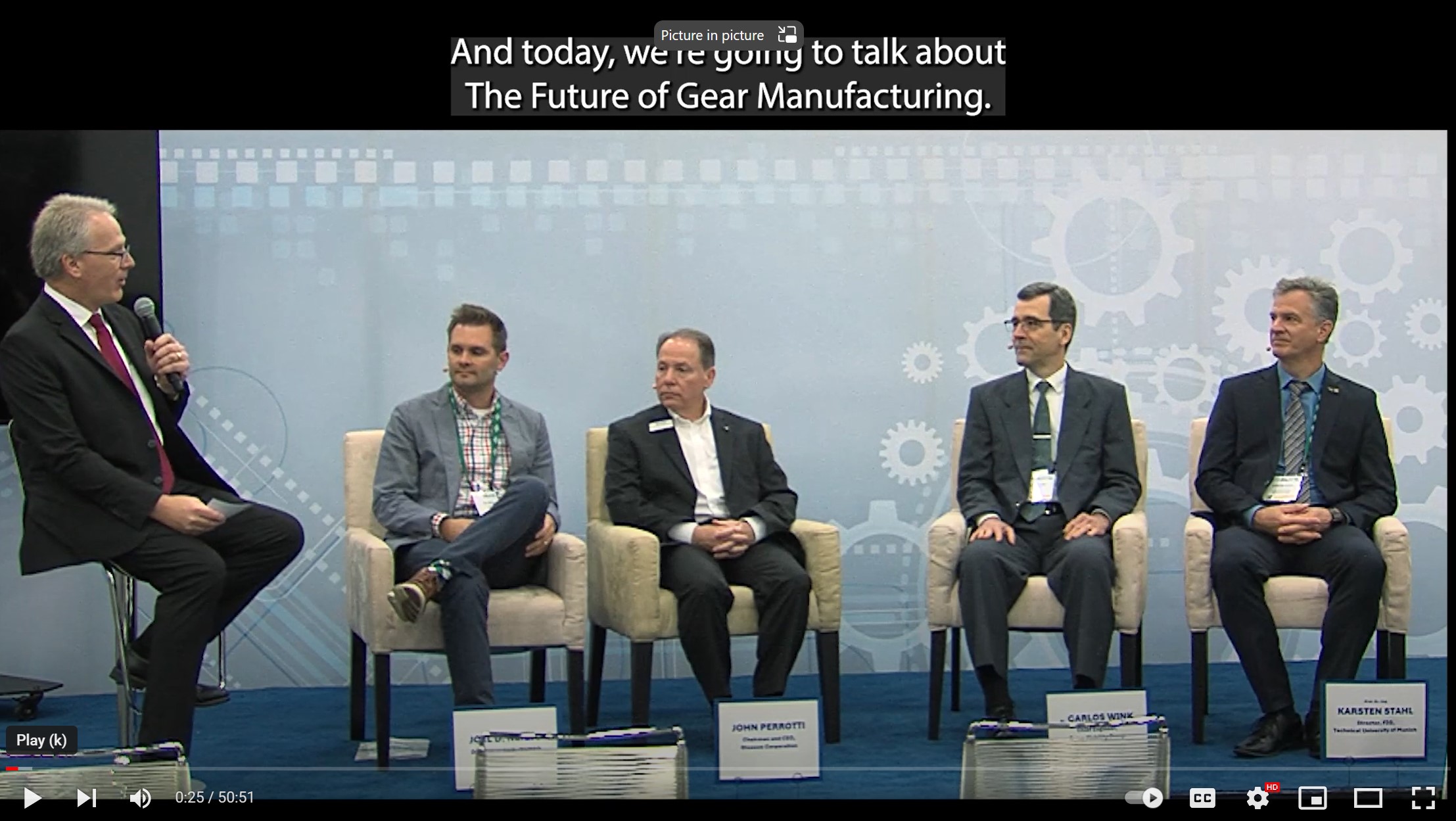High-Speed Invitation
 AGMA wants you to be involved in standards development! AGMA is in the early planning stages for a comprehensive review, and possible revision, of the widely popular high-speed gearing standard, ANSI/AGMA 6011: Specification for High-Speed Helical Gear Units. ANSI/AGMA 6011 covers the special requirements in design, rating and application of enclosed helical gear drives where pitch line velocity exceeds 35 meters per second or rotational speeds exceed 4,500 rpm. If you manufacture or purchase gearboxes at those high speeds, you are a stakeholder in the industrial high-speed gearing industry. To help with this undertaking, and to maximize consensus throughout the industry, AGMA is inviting participation from all stakeholders in the industry.
AGMA wants you to be involved in standards development! AGMA is in the early planning stages for a comprehensive review, and possible revision, of the widely popular high-speed gearing standard, ANSI/AGMA 6011: Specification for High-Speed Helical Gear Units. ANSI/AGMA 6011 covers the special requirements in design, rating and application of enclosed helical gear drives where pitch line velocity exceeds 35 meters per second or rotational speeds exceed 4,500 rpm. If you manufacture or purchase gearboxes at those high speeds, you are a stakeholder in the industrial high-speed gearing industry. To help with this undertaking, and to maximize consensus throughout the industry, AGMA is inviting participation from all stakeholders in the industry.
The primary aim of the review is to ensure that ANSI/AGMA 6011 continues to provide the industry with the latest industry-accepted, state-of-the-art practices. Specifically, this committee will consider the standard’s compatibility with the newly published sixth edition of API Standard 613: Special-purpose Gears for Petroleum, Chemical, and Gas Industry Services in conjunction with proposed changes to AGMA 923: Metallurgical Specifications for Steel Gearing and ANSI/AGMA 2101: Fundamental Rating Factors and Calculation Methods for Involute Spur and Helical Gear Teeth.
Interested stakeholders will be invited to a virtual meeting to determine the project scope, outline the project milestones and assess the project feasibility. For more information and to be registered as an “interested stakeholder,” please contact the AGMA technical division at tech@agma.org before May 15.
Behind the scenes of almost every good and service, there are standards showing the industry how to make superior products. Standards provide a common language, document years of collective experience on proven and verified practices, and are the generally accepted rules, guidelines and requirements within an industry. In the United States, the stakeholders are in the driver’s seat of standards development. Those who will use, and are affected by, a proposed standard are the ones tasked with writing it. Standards development is a democratic, free and open process that requires consensus before publishing. After publication, a standard’s fate rests with customers and suppliers to mutually, and voluntarily, agree to the adopt the standard.
For over 100 years, AGMA has been the facilitator for the development of American gear standards. For AGMA to make gear standards the best they can be, everyone in the industry needs to be involved. When AGMA standards-writing technical committees have open projects, they meet approximately six times per year for two-hour virtual meetings, and approximately once per year for a two-day in-person meeting.
Committee meetings are a great place to network and collaborate with experts in the field, broaden your knowledge, capture technical expertise in writing, refine the standards you use and see how your influence helps shapes best practices throughout America and around the world.
From a company perspective, being involved in standards development saves time and money in a variety of ways, including reduction of redundancy, improved quality and safety, and better focusing of R&D resources. Also note that if your company’s not at the table helping to write the latest standards, the standards that affect your business will be written by your competitors. For the health of our industry, please reach out and make your experience a part of this living record.
Related Articles
Related Events

-
August 15, 2024
-
-
Mission to Mars
August 15, 2024
-
-
Small Bevel Gears Made Easy
October 22, 2024
-
-
Small Bevel Gears Made Easy
October 22, 2024 -
The Importance of Workholding Flexibility
August 15, 2024





